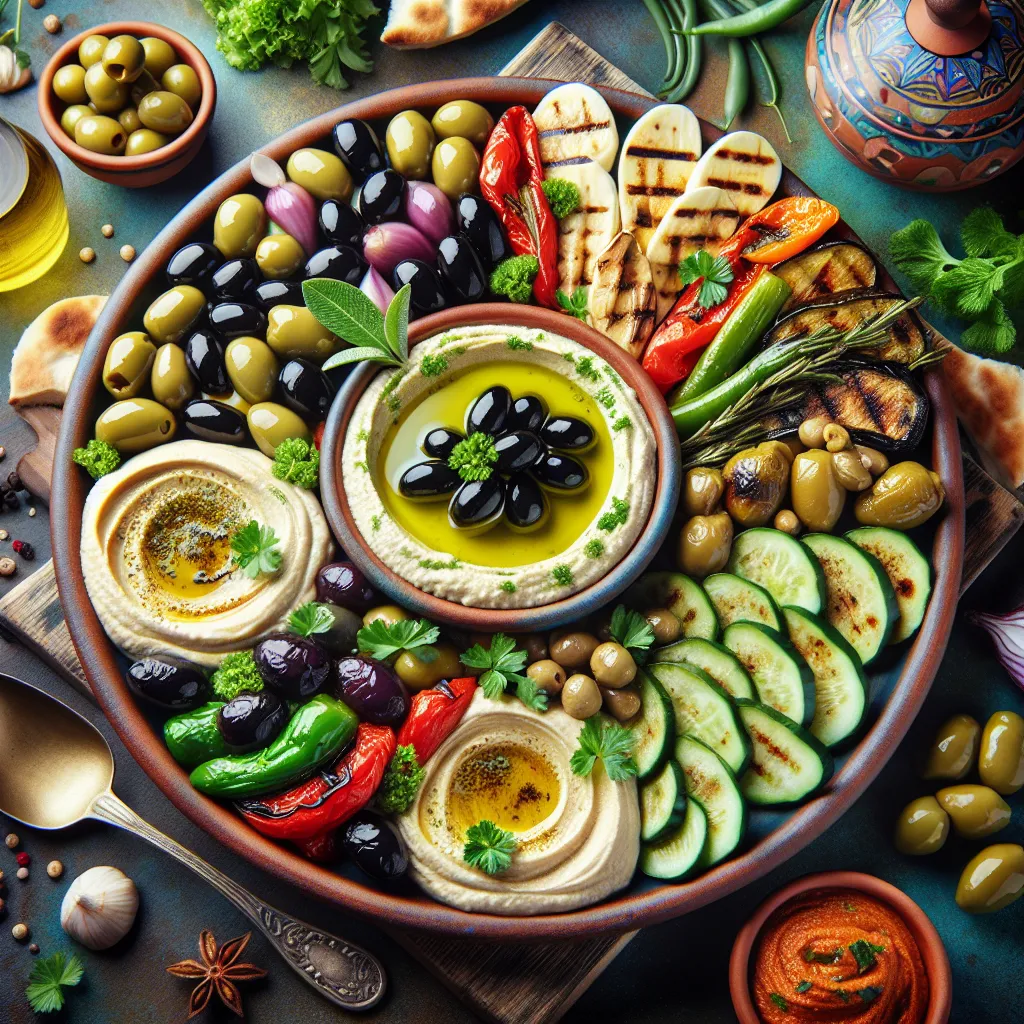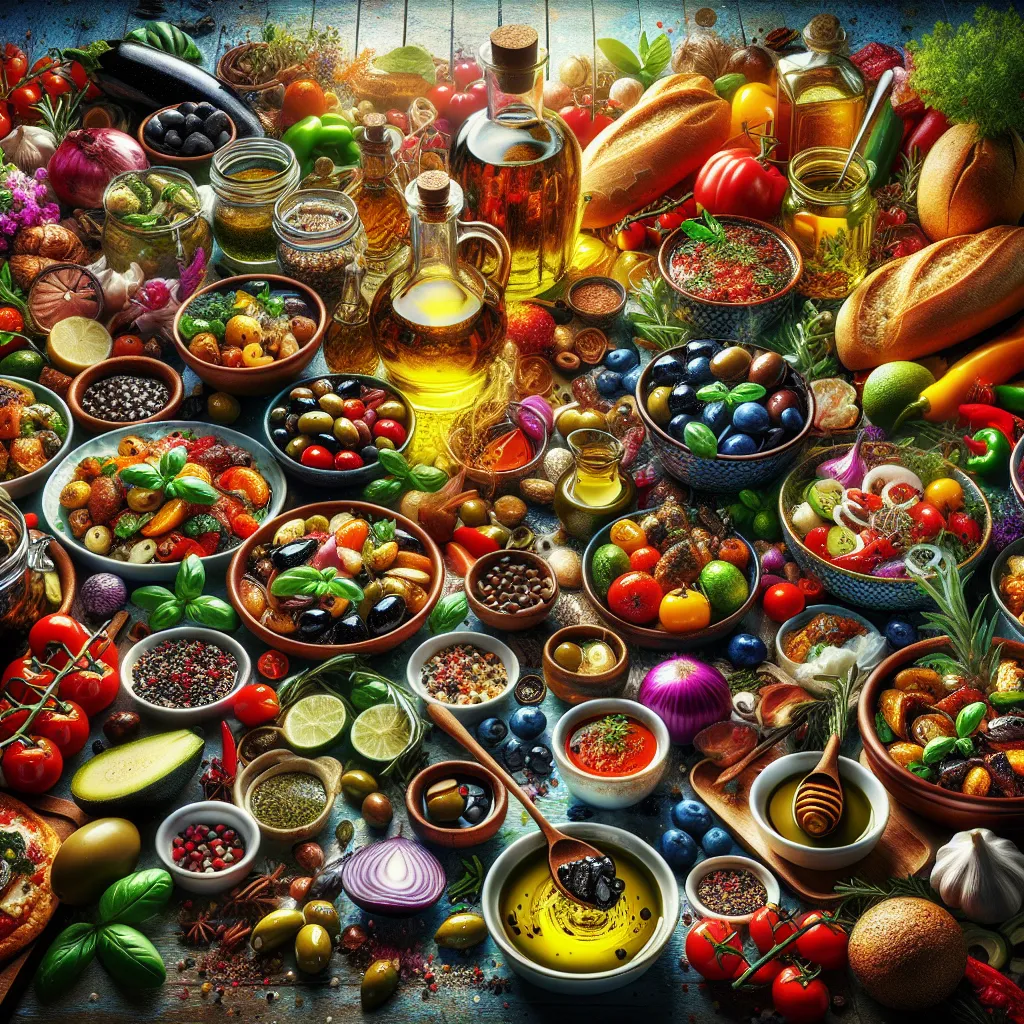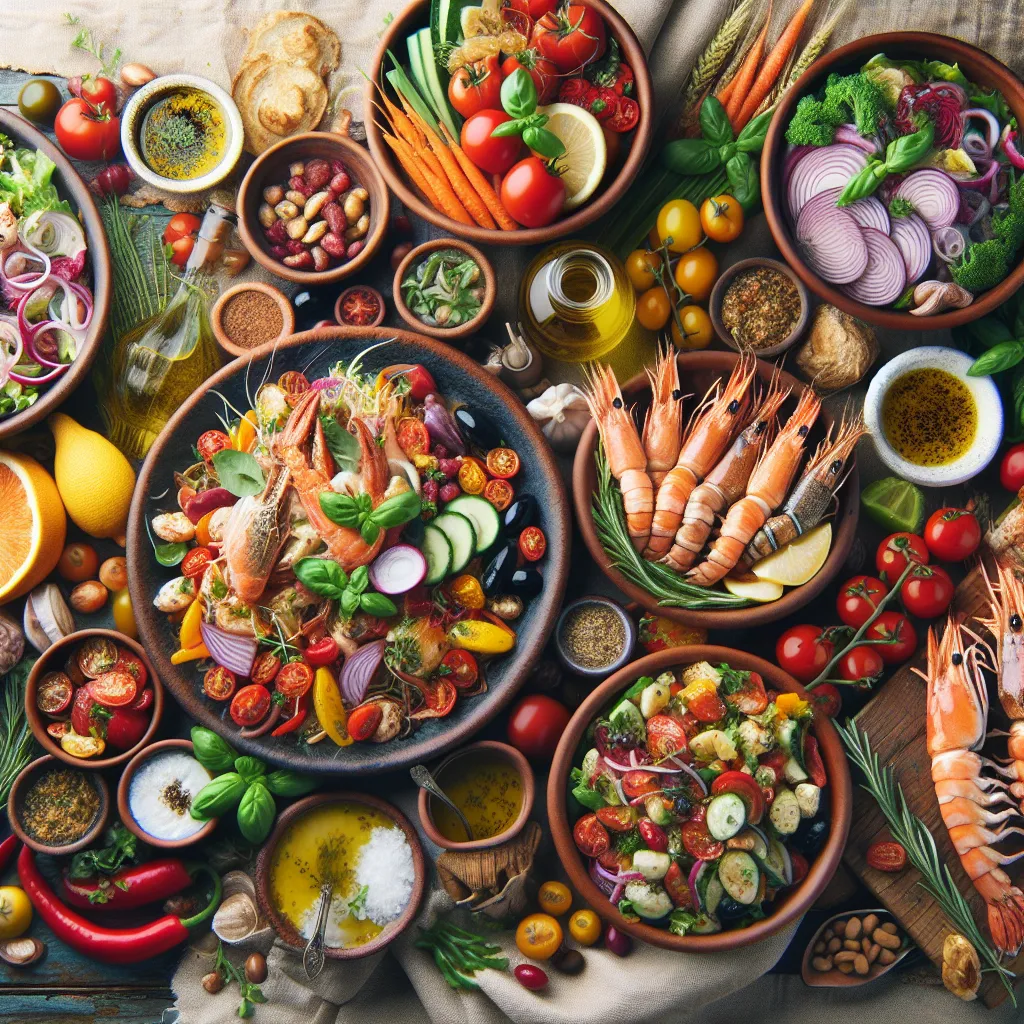The Diversity of Mediterranean Ingredients
The Mediterranean cuisine is renowned for its rich and diverse flavors, which are a result of the wide variety of ingredients used in the region. The culinary traditions of countries surrounding the Mediterranean Sea, such as Italy, Greece, Spain, and Turkey, showcase the abundant diversity of ingredients available. One of the key aspects that contribute to the unique flavors of Mediterranean cuisine is the use of fresh and locally sourced produce. From vibrant fruits and vegetables to fragrant herbs and aromatic spices, the ingredients used in Mediterranean cooking add depth and complexity to dishes.
Olives, tomatoes, garlic, and olive oil are fundamental ingredients that form the base of many Mediterranean recipes. The region’s fertile lands yield an array of olives that are pressed into high-quality olive oils, adding a distinctive richness to dishes. Tomatoes, whether fresh or sun-dried, are used in sauces, salads, and stews, imparting a sweet and tangy flavor. Meanwhile, garlic, with its pungent aroma, is a staple in Mediterranean cooking, enhancing the taste of meats, vegetables, and sauces.
Herbs such as oregano, basil, thyme, and rosemary are widely used to infuse dishes with a medley of aromas and flavors. These herbs thrive in the Mediterranean climate and add a refreshing and earthy dimension to the cuisine. Furthermore, the region’s extensive coastline provides an abundant supply of seafood, including fish, shrimp, and shellfish, which are integral to many traditional Mediterranean dishes.
Additionally, the Mediterranean region is celebrated for its cultivation of grains, with wheat being a primary crop. This is evident in the widespread use of bread, pasta, and couscous in Mediterranean cuisine. The art of baking and preparing grains has been refined over generations, resulting in a diverse array of breads, pastries, and pastas that are central to the culinary heritage of the region.
Overall, the rich flavors of Mediterranean cuisine are a testament to the diverse range of ingredients found in the region. From the bounty of the land to the treasures of the sea, the Mediterranean’s ingredients inspire an endless exploration of tastes and aromas.
Traditional Cooking Techniques from the Mediterranean Region
The rich and diverse flavors of Mediterranean cuisine are a product of the traditional cooking techniques that have been passed down through generations. From the slow simmering of stews to the use of fresh herbs and spices, the culinary traditions of the Mediterranean region are rooted in a deep respect for both the ingredients and the cooking process.
One of the hallmark techniques of Mediterranean cuisine is the art of grilling. Whether it’s fish, meat, or vegetables, grilling imparts a distinct smokiness and char that adds depth to the flavors. This method of cooking has been perfected over centuries, resulting in dishes like Greek souvlaki, Turkish kebabs, and Italian grilled seafood.
Another fundamental aspect of traditional Mediterranean cooking is the art of preserving. Techniques such as pickling, sun-drying, and brining have been used for centuries to extend the shelf life of seasonal produce. This not only ensures a steady food supply throughout the year but also intensifies the flavors of the ingredients, as seen in preserved lemons, olives, and sun-dried tomatoes.
Furthermore, the Mediterranean region is famous for its extensive use of olive oil. Whether it’s for sautéing, dressing salads, or simply drizzling over finished dishes, olive oil is at the heart of Mediterranean cooking. Its fruity and peppery notes can significantly enhance the flavor profile of a dish, making it a crucial element in traditional recipes.
In conclusion, the traditional cooking techniques of the Mediterranean region play a vital role in shaping the rich and diverse flavors that characterize its cuisine. From grilling to preserving and the ubiquitous use of olive oil, these time-honored methods continue to define and elevate Mediterranean dishes to this day.
The Influence of History and Culture on Mediterranean Cuisine
The rich and diverse flavors of Mediterranean cuisine are a result of centuries of history and a blend of cultures that have shaped the region’s culinary traditions. The influence of history and culture on Mediterranean cuisine is evident in the wide variety of ingredients, cooking techniques, and flavors that define the food of this region.
Exploring the Health Benefits of Mediterranean Diet
The Mediterranean diet is renowned for its rich and diverse flavors, but its health benefits are equally remarkable. This diet, which is prevalent in countries such as Greece, Italy, and Spain, emphasizes the consumption of fruits, vegetables, whole grains, and lean proteins like fish and legumes. The abundant use of olive oil, a key component of the Mediterranean diet, provides a healthy source of monounsaturated fats, which can aid in reducing the risk of heart disease.
Studies have shown that adhering to a Mediterranean diet can contribute to overall heart health by lowering levels of LDL cholesterol, reducing the risk of high blood pressure, and decreasing the likelihood of developing metabolic syndrome. Furthermore, the high intake of fresh fruits and vegetables provides essential vitamins, minerals, and antioxidants that support overall well-being and may reduce the risk of chronic diseases.
Incorporating this style of eating into your lifestyle can also have a positive impact on weight management. The focus on whole, nutrient-dense foods and the limited consumption of processed products can support healthy weight maintenance and even aid in weight loss. Additionally, the inclusion of moderate amounts of red wine, which is a staple of the Mediterranean diet, has been associated with a reduced risk of heart disease due to its high concentration of antioxidants.
Overall, the Mediterranean diet offers a delicious way to promote heart health, maintain a healthy weight, and reduce the risk of chronic diseases. By embracing the rich flavors and wholesome ingredients characteristic of this diet, individuals can savor not only the culinary experience but also the numerous health benefits it provides.




